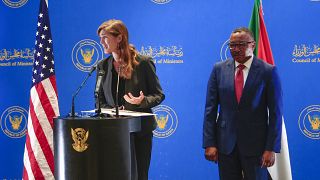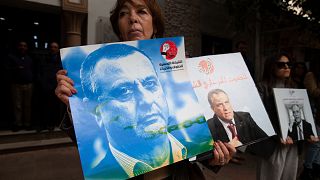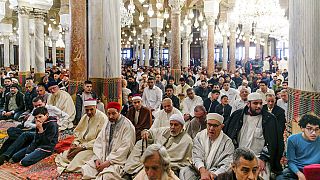Tunisia
The post of prime minister is still vacant, and MPs critical of the president have been arrested. A week after Kais Saied took power in Tunisia, fears of an authoritarian drift prompted some observers to express their concern on Sunday.
Mr. Saied granted himself full powers on July 25 and suspended parliament, saying he wanted to "save" the small Maghreb country, which has been plagued by months of political deadlocks and a new deadly spike in Covid-19 - Tunisia has one of the world's worst official death rates.
In establishing this exceptional regime, denounced by his opponents in the Islamist-inspired Ennahdha party as a "coup d'état", Mr. Saied also lifted the parliamentary immunity of deputies.
In this context, several arrests have caused controversy in the last three days. Two deputies of the Islamo-nationalist movement Al-Karama, an ultraconservative party allied to Ennahdha, were arrested on Saturday night.
Maher Zid and Mohamed Affes are in custody as part of an "investigation by the military justice", explained on Facebook the leader of Al-Karama, Seifeddine Makhlouf.
According to the lawyer, who is very hostile to President Saied, he and the two deputies are being prosecuted in a case related to an altercation that occurred in March at the airport in Tunis. They are suspected of having insulted border police officers who had forbidden a woman to travel.
Contacted by AFP, the prosecutor's office could not be reached. No details of the military justice system have been released.
Al-Karama is among the parties denouncing a "coup" by President Saied.
On Friday, an independent MP, Yassine Ayari, who also denounced a "military coup," was arrested under a two-month prison sentence handed down in late 2018 for criticizing the military, according to Tunisian military justice. His incarceration has raised concerns from NGOs such as Human Rights Watch and Amnesty International.
"Settling of accounts"
Faced with these arrests, the Harak party of the former president of the Republic Moncef Marzouki has expressed in a statement its "deep concern". This formation, which is not allied with Ennahdha in the Assembly, condemned a "shift to the settlement of political accounts and the repression of freedoms, contrary to the assurances given by the head of state."
Faced with concerns that the cradle of the Arab Spring is regressing toward authoritarianism, Saied assured Friday that there is "no fear to have" regarding freedoms and rights in Tunisia.
Quoting the former French president Charles de Gaulle, he said he was no longer old enough to become a dictator. According to him, the arrests only concern people who are already being prosecuted.
However, the international community is becoming increasingly concerned. On Saturday, the United States urged Tunisia to quickly return to "the path of democracy.
A week after his coup, Mr. Saied has still not appointed a new prime minister. He has, however, appointed an interim interior minister, set up a crisis unit to deal with the Covid-19 epidemic, headed by a military officer, and promised to tackle the corruption that is plaguing the country.
Some observers are beginning to question Mr. Saied's leadership in getting Tunisia out of its rut.
The recent arrests "represent a strategic mistake" and "are not in line with the president's speech", reacted political scientist Slaheddine Jourchi to AFP.
"Everyone expected him to start with the dangerous files of corruption and to lead a direct battle against known parties, but these first arrests concerned opponents," he observed.
AFP











Go to video
Egyptian-UK activist Alaa Abdel Fattah gets sick on hunger strike in prison
01:15
Tunisian President Saied dismisses prime minister amid political tensions
01:30
Mother's hunger strike continues for son's release from Egyptian jail
01:51
Coming home: Ghana has granted citizenship to hundreds of African Americans
04:00
Year in Review: African elections in 2024
02:10
Ruling party candidate Nandi-Ndaitwah favorite as Namibia votes